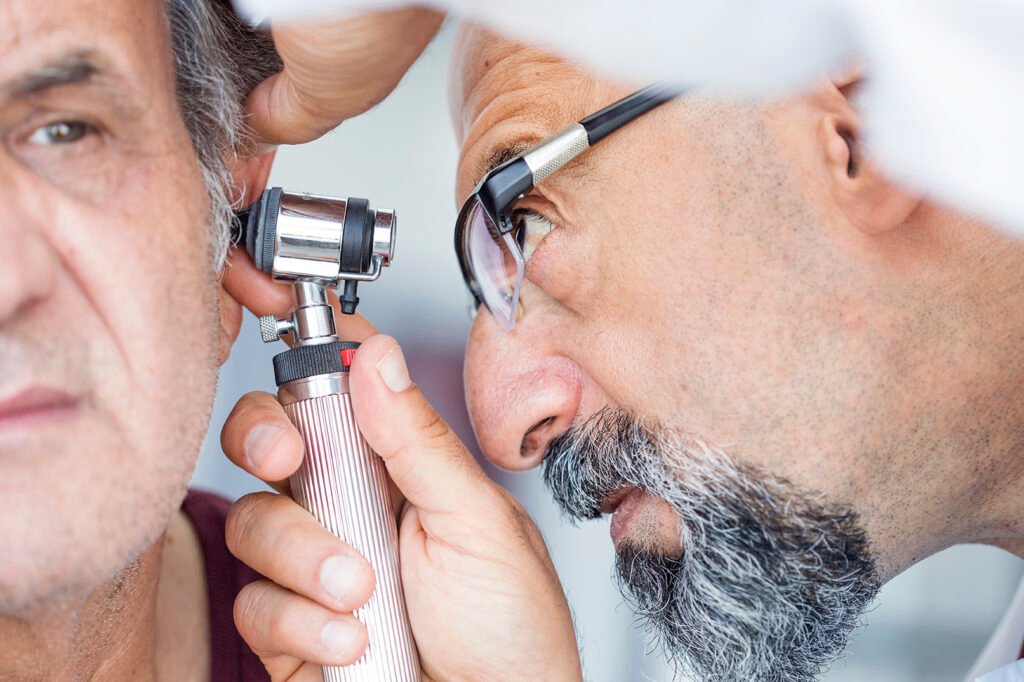
Neuro-Otology (or Neurotology) is a specialized branch of medicine that focuses on neurological disorders of the ear and brain—especially those that affect hearing, balance, and facial nerves. It is a subspecialty of otolaryngology (ENT) and closely overlaps with neurology and neurosurgery.
What Does a Neuro-Otologist Do?
A neuro-otologist diagnoses and treats:
- Disorders of the inner ear (cochlea and vestibular system)
- Auditory nerve (cranial nerve VIII)
- Related brainstem or cerebellar pathways
- Facial nerve disorders (cranial nerve VII)
📋 Common Conditions Treated in Neuro-Otology
🔊 Hearing Disorders
- Sensorineural hearing loss
- Sudden hearing loss
- Tinnitus (ringing in the ears)
- Auditory neuropathy
🤢 Balance Disorders (Vestibular Disorders)
- Vertigo
- Meniere’s disease
- Vestibular neuritis
- Labyrinthitis
- Benign Paroxysmal Positional Vertigo (BPPV)
- Mal de Débarquement Syndrome
🧠 Neurological-Ear Disorders
- Acoustic neuroma (vestibular schwannoma)
- Facial nerve paralysis (e.g., Bell’s palsy, tumors)
- Skull base tumors
- Perilymph fistula
- Superior canal dehiscence
🧪 Diagnostic Tests in Neuro-Otology
- Audiometry (hearing test)
- Vestibular testing (VNG, ENG, VEMP)
- Electrocochleography
- Brainstem Auditory Evoked Response (BAER/ABR)
- MRI and CT scans (for tumors or structural issues)
- Balance platform testing (posturography)
🏥 Treatments Offered
- Medical treatment (steroids, diuretics, vestibular suppressants)
- Vestibular rehabilitation therapy (VRT) for balance issues
- Hearing aids or cochlear implants
- Surgery for:
- Tumor removal (e.g., acoustic neuroma)
- Cochlear or brainstem implants
- Inner ear conditions (e.g., endolymphatic sac decompression)
- Botox or nerve repair for facial nerve disorders
🤝 Multidisciplinary Nature
Neuro-otology often requires collaboration with:
- Audiologists
- Neurologists
- Neurosurgeons
- Physical therapists (for vestibular rehab)
- Radiologists
🧑⚕️ When to See a Neuro-Otologist
You may be referred to a neuro-otologist if you experience:
- Persistent or unexplained hearing loss
- Chronic or sudden vertigo/dizziness
- Tinnitus with neurological symptoms
- Imbalance or unsteadiness
- Facial numbness or paralysis
- Suspected inner ear or skull base tumors

